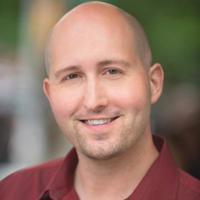The History of Voice Pedagogy
Tuesday 27th February 2024, 4:00 PM - 6:00 PM (London Time)
This two-hour workshop explores the history of voice pedagogy from an interdisciplinary perspective, examining the historical arc of various voice training disciplines and highlighting significant people and events within the voice studies field.
Topics include the history of teaching singing, voice for the actor, public speaking, and speech language therapy/pathology.
Participants will gain insight into how voice pedagogy came to be, how it has organized itself professionally, how it has dealt with challenges, and how it can still develop.
Dr Rockford Sansom
Rockford Sansom, PhD, MFA, is a voice trainer and theatre professor. As a voice coach, he has worked with actors Off-Broadway and in regional theatres, Fortune 100 CEOs...

Attend this course for as little as £22 as part of the Voice Professional Training CPD Award Scheme.
Learn MoreSorry, this is an archived short course...
We have plenty of upcoming short courses coming soon. See details of some of them below or look at the full list of short courses.

Wednesday 4th March 2026
1:00 PM - 2:00 PM
Wednesday 11th March 2026
1:00 PM - 2:00 PM
Wednesday 18th March 2026
1:00 PM - 2:00 PM
Wednesday 25th March 2026
1:00 PM - 2:00 PM
Wednesday 1st April 2026
1:00 PM - 2:00 PM
Wednesday 8th April 2026
1:00 PM - 2:00 PM
(London Time)
Learn to Coach RP and SSBE – a Certificate in Accent Coaching

Louisa Morgan
This six-week course is an opportunity to learn about both Received Pronunciation and Standard Southern British English. Rather than a course in learning how to speak RP/SSBE (there are many brilliant available courses for this already), this course is about learning how to coach it.

Thursday 5th March 2026
1:00 PM - 2:30 PM
Thursday 12th March 2026
1:00 PM - 2:30 PM
(London Time)
Acting Emotion: Perspectives from the Masters

Louisa Morgan
Stanislavski said, “our artistic emotions are, at first, as shy as wild animals and they hide in the depths of our souls.” Michael Chekhov said, our bodies should be like a “sensitive membrane, a kind of receiver and conveyor of the subtlest images, feelings, emotions and will impulses.” And Meisner said we should be “living truthfully under imaginary circumstances.” Join Louisa Morgan in this 2-part course as she explores a range of well-known acting practitioners to investigate what they believed (or believe) about emotion and how they approached it in their work. She'll compare their work to see where they align and where they diverge.


Tuesday 10th March 2026
3:00 PM - 5:00 PM
(London Time)
Living truthfully in the present moment: An introduction to the Meisner Technique!

Abigail Sugden
Sanford Meisner believed that acting is living truthfully under imaginary circumstances. Rooted in behavioural aspects of acting practice, the Meisner Technique is often associated with encouraging actors to live truthfully in the present moment. Aimed at those working within the field of acting, this 2-hour session with Abigail Sugden will focus on the work of Sanford Meisner, introducing the core principles of his technique and discussing the possible benefits to performers.
